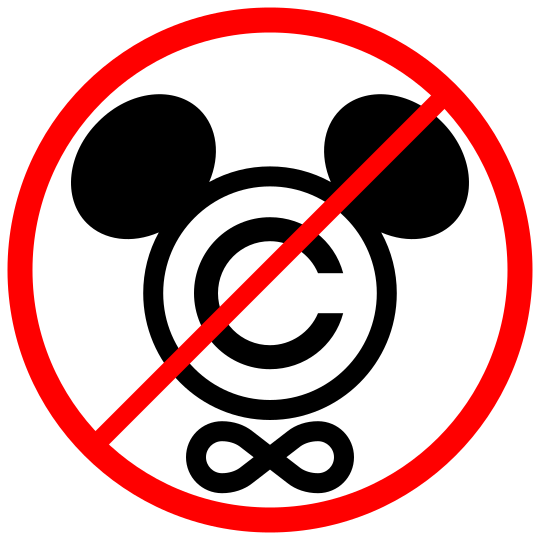 A promising-looking petition on the White House website asks the administration to reverse the ongoing trend in copyright law, which has repeatedly extended the term of copyright protection. For individual work, like this blog, the term now extends seventy years beyond the creator’s death, meaning these words may be protected for well over a century. Work made for hire is now protected for 120 years after its creation. 120 years!
A promising-looking petition on the White House website asks the administration to reverse the ongoing trend in copyright law, which has repeatedly extended the term of copyright protection. For individual work, like this blog, the term now extends seventy years beyond the creator’s death, meaning these words may be protected for well over a century. Work made for hire is now protected for 120 years after its creation. 120 years!The petition does include one error. It wants to restore the term of copyright to its “original” 28-year duration. But America’s first copyright law, the Copyright Act of 1790, gave works a protected life of fourteen years, with the option of a fourteen-year renewal. The Founding Fathers wanted to protect the creators of original works, but in a primarily agrarian economy, the imperative to tinker with common knowledge was a powerful motivator to growth and well-being.
Who, then, benefits from copyright protection that won’t lapse until our great-grandchildren are in their dotage? Certainly not writers, by which I mean novelists, poets, and journalists. Most books published in America sell the bulk of their copies in the first year. Stephen King may butter his bread with The Shining for decades, but most working writers crank out one book (or more) per year because that’s how long they can expect to receive residuals.
Visual artists may receive some payments for the licensing of their work. But for the most part, they make most of their money on the original sale of the work. They, too, have to keep producing to get paid. Superstar actors may receive residuals, but most actors get paid a salary. And most musicians don’t make any money on their recordings; they make their living mainly on live performance, and have to tour incessantly to cover routine bills.
 |
| Creative Commons |
In short, creative people receive little benefit from marathon copyrights. To see who does benefit, consider the most recent amendment to American copyright law, the Sonny Bono Copyright Term Extension Act of 1998. More specifically, look at its most common nickname: the Mickey Mouse Protection Act. Bono ramrodded the act through a compliant Congress at the behest of Disney, a major contributor, because protections were about to lapse on “Steamboat Willie.”
More generally, long copyright protections serve the interest of filmmakers. Because of the ease of consumption and the constantly upgrading technologies of distribution, films have a very long life expectancy. Right now, movies created in 1923 remain under copyright, meaning only the classic silents and the very earliest talkies have lapsed into public domain. Note that they have this protection, not for creating the films, but for distributing them.
The creative personnel behind classics like Casablanca, Gone With the Wind, and Citizen Kane have already made and spent their money from these films. Indeed, nearly the entire cast and crew of these films are long dead. Yet the studio executives, who mostly were not born when the films were made, continue drawing residuals for nothing more than keeping the films circulating. This creates a huge gap between creative work and economic reward.
This problem has spilled over into other creative endeavors. American courts continue to dither over whether music recorded for major labels constitutes proprietary creative work, or work for hire. The difference means not just who owns the recordings, but what distribution protections it entails: work for hire means a long guaranteed income for the labels. Proprietary work means a more variable protection guaranteed to the artist.
 |
| Copyleft |
That’s why, starting today, I release part of my rights on this blog. Look at the righthand side of your screen, at the bottom of the column, and you will see my new Creative Commons license, allowing you to share my work, as long as you keep my name on it and don’t try to sell my words.
Copyright terms that will outlive children not yet born serve to protect only one force: the corporations that hold the keys of access. But creativity is too important to belong to corporations. Please sign the petition for freer creativity today.
No comments:
Post a Comment